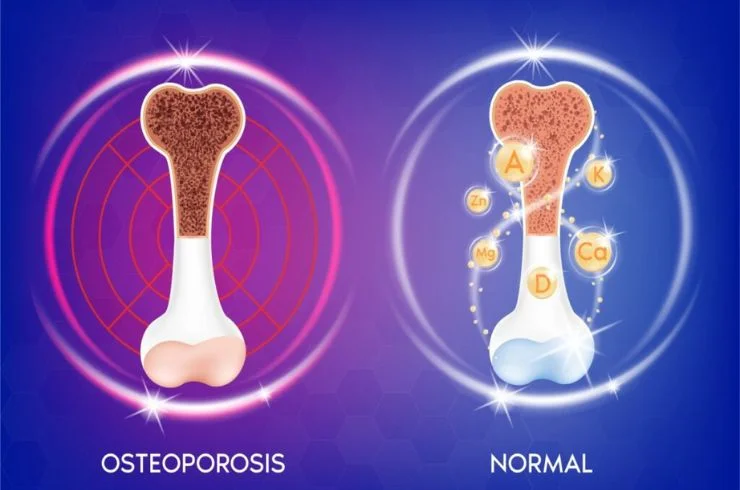Osteoporosis Pain Treatment

Osteoporosis Pain Treatment in Hyderabad
What is Osteoporosis?
Osteoporosis is a medical condition characterized by the weakening of bones, making them fragile and more susceptible to fractures. It is a widespread condition, affecting millions of people globally, including over a million Australians.
Bones are living tissues made of minerals, primarily calcium and phosphorus, which continuously undergo remodeling. In osteoporosis, this remodeling process becomes unbalanced, with bone resorption (breakdown) occurring at a faster rate than bone formation, resulting in reduced bone density. Although the size of the bones remains unchanged, their structure becomes porous and brittle, increasing the risk of fractures.
Symptoms of Osteoporosis
Many individuals with osteoporosis may not experience noticeable symptoms until they suffer a fracture. However, early signs and symptoms can include:
- Back Pain: Often caused by vertebral compression fractures.
- Stooped Posture: A noticeable curvature of the spine due to multiple fractures.
- Loss of Height: Significant height loss (more than 3 cm) can indicate undiagnosed vertebral fractures.
Vertebral compression fractures are the most common type of fracture associated with osteoporosis, which can lead to a hunching of the back over time.
Osteoporosis Treatment Options
Effective management of osteoporosis involves a combination of medication, lifestyle changes, and sometimes surgical interventions.
1. Medication and Pharmacotherapy:
- Oral Bisphosphonates:
- Alendronate, Risedronate, and Ibandronate are commonly prescribed to manage early-stage osteoporosis and osteopenia. These medications help slow down bone loss and increase bone density.
- Intravenous Infusions:
- For more severe cases, especially when immediate intervention is needed, Zoledronic Acid is administered intravenously. This medication is effective in rapidly improving bone density and reducing fracture risk.
2. Hormonal Therapy:
- Estrogen Replacement Therapy: Often considered for postmenopausal women, it helps to maintain bone density.
- Parathyroid Hormone: In certain cases, this may be prescribed to stimulate bone formation.
3. Lifestyle Changes:
- Nutrition:
- Ensuring adequate intake of calcium and vitamin D is essential for bone health.
- Exercise:
- Weight-bearing and muscle-strengthening exercises can enhance bone strength and reduce fall risk.
4. Fall Prevention Strategies:
- Modifications in the home environment to reduce fall risks, including proper lighting and removing trip hazards, are crucial in managing osteoporosis.
Services
- Ankle Pain Treatment
- Arthritis Pain Treatment
- Back Pain Treatment
- Cancer Pain Treatment
- Elbow Pain Treatment
- Fibromyalgia Treatment
- Foot Pain Treatment
- Headache & Migraine Treatment
- Hip Pain Treatment
- Joint Pain Treatment
- Knee Pain Treatment
- Lower Back Pain Treatment
- Middle Back Pain Treatment
- Neck Pain Treatment
- Nerve Pain(Neuropathic Pain) Treatment
- Orthopedic Trauma Treatment
- Osteoporosis Pain Treatment
- Shoulder Pain Treatment
- Slipped Disc Treatment
- Sports Injury Treatment
- Tailbone Pain Treatment
- Slipped Disc Treatment
- Trigeminal Neuralgia Treatment
- Upper Back Pain Treatment
- Vertebral Compression Fracture Treatment
